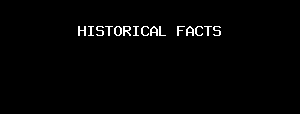News And PoliticsCommunications And EntertainmentSports And FitnessHealth And LifestyleOthersGeneralWorldnewsBusiness And MoneyNigerianewsRelationship And MarriageStories And PoemsArts And EducationScience And TechnologyCelebrityEntertainmentMotivationalsReligion And PrinciplesNewsFood And KitchenHealthPersonal Care And BeautySportsBusinessFamily And HolidaysStoriesIT And Computer ScienceRelationshipsLawLifestyleComedyReligionLifetipsEducationMotivationAgriculturePoliticsAnnouncementUSMLE And MedicalsMoneyEngineeringPoemsSocial SciencesHistoryFoodGive AidBeautyMarriageQuestions And AnswersHobbies And HandiworksVehicles And MobilityTechnologyFamilyPrinciplesNatureQuotesFashionAdvertisementChildrenKitchenGive HelpArtsWomenSpiritualityQuestions AnsweredAnimalsHerbal MedicineSciencePersonal CareFitnessTravelSecurityOpinionMedicineHome RemedyMenReviewsHobbiesGiveawayHolidaysUsmleVehiclesHandiworksHalloweenQ&A
Education
profile/1937Screenshot_20220413-132311_Instagram.jpg
Caster

Mesa Verde, USA
~0.6 mins read
Mesa Verde is home to one of the most visually stunning archeological sites in the USA and some of the most well preserved Indian ruins in North America. The most impressive sites are the cliff dwellings tucked precariously into the canyon walls, but the entire area, including the forest covered plateau, contains a vast array of ruins.
The Ancestral Puebloans inhabited this area of what is now Colorado for hundreds of years, living on top of the plateau between the 6th and 12th centuries and then in the cliff dwellings until the late 13th century. The drive up to the site is along a gently twisting road to the top of the mesa, where you can tour the sites on the plateau by car to see pit houses and other ruins, and enjoy stunning views of the dwellings in the canyon walls.
The Ancestral Puebloans inhabited this area of what is now Colorado for hundreds of years, living on top of the plateau between the 6th and 12th centuries and then in the cliff dwellings until the late 13th century. The drive up to the site is along a gently twisting road to the top of the mesa, where you can tour the sites on the plateau by car to see pit houses and other ruins, and enjoy stunning views of the dwellings in the canyon walls.
profile/4904Snapchat-1431714013.jpg
Maxdking

HISTORICAL FACTS
~1.7 mins read
The richest person in the history of the earth was Mansa Musa du mali (Black)
- The greatest Pop musician was Michael Jackson (Black)
-The greatest jazz singer "The famous Aretha Franklin. (Black)
- The greatest footballer was Pèle (Noir)
- The biggest boxer was Muhammed Ali (Black)
- The biggest and richest golfer is Tiger Woods (Black)
- The greatest Basketball player was Michael Jordan (Black)
- The biggest runner and only world record is Usain Bolt (Black)
-The biggest female tennis player is Serena Williams (Black)
- The biggest Hip Hop artist was 2 PAC (Black)
-The greatest philosophers were Malcolm X and Martin Luther King Jr (Blacks)
- The greatest Reggae artist was Bob Marley (Black)
-The most educated President was Robert Mugabe (Black)
- The world's greatest President was Nelson Mandela (Black)
- the man who successfully carried out the American space shuttle to the moon was called "Arineitwe" a Ugandan (Black)
- The most famous of the generals was Colin Luther Powell (Black)
- The great surgeon in the world is Ben Carson (Black)
- The greatest Medical invention .. The revolutionary robot used in brain surgery by the Franco-Beninese Bertin Nahum (Black).
* The next great person is You! *
* Stop thinking that white people are superior to Us. * * Black people are not the lowest in this world either! *
* Start to discover the superiority in You. *
* Let us wake up dear African brothers. *
One love from this end
*40 Êᴇᴀʀs ᴀɢá´*,
...............................
*40 Êᴇᴀʀs ᴀɢá´*, ᴇᴠᴇʀÊá´É´á´‡ ᴡᴀɴᴛᴇᴅ ᴛᴠʜᴀᴠᴇ ᴄʜɪʟᴅʀᴇɴ. á´›á´á´…á´€Ê á´á´€É´Ê ᴘᴇá´á´˜ÊŸá´‡ ᴀʀᴇ ᴀғʀᴀɪᴅ á´Ò“ ʜᴀᴠɪɴɢ ᴄʜɪʟᴅʀᴇɴ.
..........................................
*40 Êᴇᴀʀs ᴀɢá´*, ᴄʜɪʟᴅʀᴇɴ ʀᴇsᴘᴇᴄᴛᴇᴅ ᴛʜᴇɪʀ ᴘᴀʀᴇɴᴛs. É´á´á´¡ ᴘᴀʀᴇɴᴛs ʜᴀᴠᴇ ᴛᴠʀᴇsᴘᴇᴄᴛ ᴛʜᴇɪʀ ᴄʜɪʟᴅʀᴇɴ.
........................................
*40 Êᴇᴀʀs ᴀɢá´*, á´á´€Ê€Ê€Éªá´€É¢á´‡ á´¡á´€s ᴇᴀsÊ Ê™á´œá´› ᴅɪᴠá´Ê€á´„á´‡ á´¡á´€s ᴅɪғғɪᴄᴜʟᴛ. É´á´á´¡á´€á´…á´€Ês ɪᴛ ɪs ᴅɪғғɪᴄᴜʟᴛ ᴛᴠɢᴇᴛ á´á´€Ê€Ê€Éªá´‡á´… ʙᴜᴛ ᴅɪᴠá´Ê€á´„á´‡ ɪs sᴠᴇᴀsÊ.
.........................................
*40 Êᴇᴀʀs ᴀɢá´*, á´¡á´‡ É¢á´á´› ᴛᴠᴋɴá´á´¡ ᴀʟʟ ᴛʜᴇ ɴᴇɪɢʜʙá´Ê€s. É´á´á´¡ á´¡á´‡ ᴀʀᴇ sᴛʀᴀɴɢᴇʀs ᴛᴠá´á´œÊ€ ɴᴇɪɢʜʙá´Ê€s.
.......................................
*40 Êᴇᴀʀs ᴀɢá´*, ᴠɪʟʟᴀɢᴇʀs ᴡᴇʀᴇ Ò“ÊŸá´á´„ᴋɪɴɢ ᴛᴠᴛʜᴇ á´„Éªá´›Ê á´›á´ Ò“ÉªÉ´á´… á´Šá´Ê™s. É´á´á´¡ ᴛʜᴇ á´›á´á´¡É´ ᴘᴇá´á´˜ÊŸá´‡ ᴀʀᴇ ғʟᴇᴇɪɴɢ Ò“Ê€á´á´ ᴛʜᴇ CITY ᴛᴠғɪɴᴅ ᴘᴇᴀᴄᴇ.
......................................
*40 Êᴇᴀʀs ᴀɢá´*, ᴇᴠᴇʀÊá´É´á´‡ ᴡᴀɴᴛᴇᴅ ᴛᴠʙᴇ ғᴀᴛ ᴛᴠʟá´á´á´‹ Êœá´€á´˜á´˜Ê ... É´á´á´¡á´€á´…á´€Ês ᴇᴠᴇʀÊá´É´á´‡ ᴅɪᴇᴛs ᴛᴠʟá´á´á´‹ ʜᴇᴀʟᴛʜÊ.
........................................
*40 Êᴇᴀʀs ᴀɢá´*, ʀɪᴄʜ ᴘᴇá´á´˜ÊŸá´‡ ᴘʀᴇᴛᴇɴᴅᴇᴅ ᴛᴠʙᴇ á´˜á´á´Ê€. É´á´á´¡ ᴛʜᴇ á´˜á´á´Ê€ ᴀʀᴇ ᴘʀᴇᴛᴇɴᴅɪɴɢ ᴛᴠʙᴇ ʀɪᴄʜ.
.........................................
*40 Êᴇᴀʀs ᴀɢá´*, á´É´ÊŸÊ á´É´á´‡ ᴘᴇʀsá´É´ á´¡á´Ê€á´‹á´‡á´… ᴛᴠsᴜᴘᴘá´Ê€á´› ᴛʜᴇ á´¡Êœá´ÊŸá´‡ Ò“á´€á´ÉªÊŸÊ. É´á´á´¡ ᴀʟʟ ʜᴀᴠᴇ ᴛᴠᴡá´Ê€á´‹ ᴛᴠsᴜᴘᴘá´Ê€á´› á´É´á´‡ ᴄʜɪʟᴅ.
..........................................
*40 Êᴇᴀʀs ᴀɢá´*, ᴘᴇá´á´˜ÊŸá´‡ ÊŸá´á´ ᴇᴅ ᴛᴠsá´›á´œá´…Ê á´€É´á´… ʀᴇᴀᴅ Ê™á´á´á´‹s ... É´á´á´¡ ᴘᴇá´á´˜ÊŸá´‡ ÊŸá´á´ á´‡ ᴛᴠᴜᴘᴅᴀᴛᴇ ғᴀᴄᴇʙá´á´á´‹ ᴀɴᴅ ʀᴇᴀᴅ ᴛʜᴇɪʀ ᴡʜᴀᴛsᴀᴘᴘ á´á´‡ssᴀɢᴇs.
*40 YEARS WAS 1980, HOW OLD ARE YOU AND REFLECT ON ALL THE ABOVE REALISTIC FACTS*
*These are hard ғᴀᴄᴛ Ò“á´Ê€ á´›á´á´…á´€Ê's ʟɪғᴇ.*
profile/1126Screenshot_20200826-225627.png
Harshley
#INTERESTING FACTS#
~1.8 mins read
.jpeg)
*Today's interesting facts* 🚗 cars
⬇ï¸â¬‡ï¸â¬‡ï¸â¬‡ï¸â¬‡ï¸â¬‡ï¸â¬‡ï¸â¬‡ï¸â¬‡ï¸â¬‡ï¸â¬‡ï¸â¬‡ï¸â¬‡ï¸
🔷The average car has 30,000 parts.
🔷It costs US$8,876 per year to own and maintain an average car in the U.S. That's US$443,800 in 50 years
🔷The word “car” is from the Latin carrum, which originally meant a “two-wheeled Celtic war chariot.” The Latin is further derived from the Proto-Indo-European root *kers- “to run
🔷The world's fastest street-legal production car is the Bugatti Veyron Super Sport, at 267 mph (431 km/h)
🔷There are 1 billion cars currently in use on earth.
🔷More men than women die each year in car accidents, most likely because men typically drive more miles than women and are more likely to engage in riskier driving practices.
🔷During a car crash, 40% of drivers never even hit the brakes.
🔷A car is stolen in the United States every 45 seconds
🔷The best selling car of all time is the Toyota Corolla, with over 30 million sales since 2009. One Corolla is sold every 40 seconds around the world.[
🔷95% of a car's lifetime is spent parked.
🔷Volkswagen owns twelve well-known car brands from 7 European countries
Including Volkswagen Passenger Cars, Audi, Seat, Skoda, Bentley, Bugatti, Lamborghini, Porsche, Ducati, Volkswagen Commerical Vehicles, Scania and MAN.
🔷Approximately 75% of the cars that Rolls Royce has produced in its history are still on the road
🔷Texting while driving increases the chances of a crash by 23 times.
🔷Most new cars fake engine noise through speakers. They are quite silent otherwise.
🔷The odds of dying in a car accident are around 1 in 5,000
🔷Traffic accidents kill 1.25 million people per year.
🔷In the early years of the 20th century, horses were causing so much pollution with their poop that cars were seen as the "green" alternative.
🔷Airbags move at up to 4500 miles per hour and deploy within 40 milliseconds of a crash. They are designed to deploy at an impact speed of 19 miles per hour
🔷The average American spends about 38 hours a year stuck in traffic.
🔷In 1924, half the cars in the world were Fords.
🔷92% of all new sold cars in Brazil
use ethanol as fuel, which is produced from sugar cane.
🔷When the car radio was introduced, some states wanted to ban it arguing that it could distract drivers and cause accidents.
🔷35% of the world's population drives on the left side of the road.
🔷🔷🔷🔷🔷🔷🔷🔷🔷🔷🔷🔷The "new car smell" is composed of over 50 volatile organic compounds.
Advertisement
Loading...
 Caster
Caster
 Maxdking
Maxdking
 Harshley
Harshley